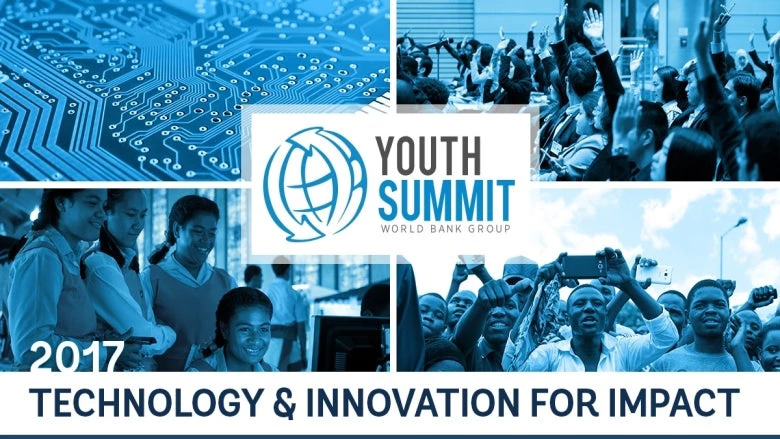
When we talk about the future of work, it is important to include perspectives, ideas and solutions from young people as they are the driving force that can shape the future. As we saw at the recent Youth Summit 2017, the younger, digitally-savvy generations —whether they are called Millennials, Gen Y, or Gen Z— shared solutions that helped tackle global challenges. The two-day event welcomed young people to discuss how to leverage technology and innovation for development impact. In this post, we interviewed —under a job-creation perspective—finalists of the summit's global competition.
Bringing domestic workers to the formal economy
Have you ever thought of an Uber-like platform for recruiting domestic workers? In Malaysia, where the population is aging, countless families rely heavily on the services of domestic workers — a majority of whom are female migrants from other Southeast Asian countries. This resonated with Zenna Law, from Kuala Lumpur, and she created Pink Collar.The start-up aims at formalizing the domestic work sector — often susceptible to abusive working conditions. Pink Collar equally supports workers and employers in the recruitment process and guides them through an ethical work partnership. Zenna hopes that “all domestic workers, someday, would have every means available to achieve a better standing in life, and eventually break free from the cycle of social inequality.” Her idea won the Youth Summit's Audience Award.
Pink Collar
Supporting flexible work arrangements for female doctors
In Pakistan, as in countless countries, low and middle-income population have limited access to quality healthcare. And, at the same time, many female doctors choose to stop working to spend time raising their children.
After graduating with masters in Health Policy Management, Makkiya Jawed saw an opportunity to close a huge market gap and started a network of health centers across the country targeting neglected and vulnerable groups.
Sehat Kahani, an all-female run network with most doctors working from home with flexible schedules, offer affordable healthcare. Since its creation, the network has served over 600.000 patients with 15 centers. Makkiya, 26, envisions a world “where females will no longer be afraid to prioritize themselves and listen to their own heart; and a world where health for all will no longer remain just a concept but rather a necessity for the human race.” The Youth Summit's Jury awarded this brilliant idea.
Sehat Kahani
Using high-tech solutions for crop insurance
About 2 billion smallholder farmers depend on rain for their daily agricultural activities. Crop insurances can partially mitigate the uncertainty of inclement weather, but they are sometimes out of reach for small farmers.
How can technology help?
Simon Schwall and Rodrigo Garcia Ayala co-founders of OKO are using satellite imagery and mobile technologies for real-time alerts and remote payments, creating a platform that will help issuing insurance against droughts and excessive rainfall affordable and efficient. The two partners are launching this project in Mali and Bolivia. Schwall, left his job at a start-up to “pursue the crop insurance opportunity, seeing it as the next service to mitigate challenges brought by climate change.”
OKO
Renewable energy for the people, by the people
In India, a country with one of the largest state-owned power grids, two friends in their twenties met at Tsinghua University last summer and created
Anant Ujwala.
This project aims to unlock the power of solar systems to enable any household to produce their own electricity and sell it to the market. Using a blockchain-based solution, Indian prosumers (producers + consumers) can buy and sell electricity in a decentralized energy system. Krishit Arora and Eshwar Agarwal dream on using “our knowledge base to solve one the most pressing problems that trouble our communities today.” Their idea also opens new opportunities for job creation in the energy sector.
Anant Ujwala
An app for crowdfunding education
Fezeka Stuurman is passionate about education and providing equal opportunities for all. She was extremely concerned by “the alarming 52% dropout” in South Africa’s education system
. After finishing her graduate degree in Sustainable Development, she created
a project to connect lower-income children with sponsors that can support them to cover the basic personal needs —such as healthcare or food— and keep these children in school.
Fezeka reminds that education greatly improves the chances of succeeding in life and having good employment opportunities in the future. “Education is one of the best tools we can use to make a dent on the impacts of poverty and inequality.”
Cultiver Group
Follow the World Bank Jobs Group on Twitter @wbg_jobs .


Join the Conversation